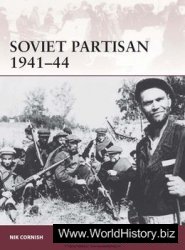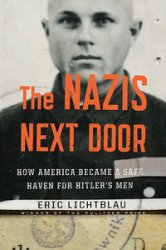A further attempt at legislating for Catholic emancipation, again with the power of veto over episcopal appointments, passed the House of Commons in 1821 but failed in the House of Lords. At this point O'Connell decided to employ a new tactic, the enlisting of mass popular support, rather than simply petitioning for redress through select committees. In May 1823 he formed a new Catholic Association to advance political rights for Catholics and their general interests in all issues. The new group, which had annual dues of one guinea, would hold weekly meetings open to the press. The following year O'Connell broadened its support by establishing a new kind of associate membership whose dues were one shilling a year, a penny a month, or a farthing a week. This brought in mass participation, as the rank and file Catholic clergy became the primary local organizers, encouraging the faithful at weekly Mass to make the affordable contribution. The first week drew in ?8, which meant 7,680 subscribers, and within a year the weekly returns were averaging ?1,000, which meant 960,000 subscribers. In essence, virtually every Catholic family in Ireland had subscribed.
Daniel O'Connell on trial for sedition, Dublin, 1844. Lithograph by J. H. Daniels (Library of Congress)
The role of the local clergy was central to the success of the movement. The local clergy, in contrast to the hierarchy who tended to come from landed families, were middle class or lower in their social origins. Less likely than the hierarchy to have been trained on the Continent, they had a more parochial perspective on issues and were less appreciative of the hierarchical disposition to compromise with political powers on matters such as allowing veto over church appointment. It was the original state grant of a subsidy for a Catholic seminary at Maynooth, followed by the formation of more seminaries, which allowed clerical training to take place in Ireland, thereby forming a more populist-minded clergy drawn from the rank and file of the population. The original grant was designed to inhibit potential Irish priests from being infected with French revolutionary attitudes. While they did not get the Jacobin virus by being trained at home, they did maintain a closer identity with the native populace from whose ranks they came and would be the ready agents for mass political activism reflective of popular sentiment. The only educated members of the Catholic community, aside from teachers and a few professionals, priests easily assumed a leadership position, which they would retain well into the late 20th century, and to which their community readily acceded. This clerical leadership of a mass movement finds a parallel in the role of the Afro-American ministry in the American Civil Rights movement and beyond in the second half of the 20th century.
The zeal with which the Catholic clergy took to the movement was partly prompted in reaction to a vigorous campaign of Protestant proselytism that had been launched by important figures in the Church of Ireland and that had some success among Catholics in very impoverished areas on the western coast of Ireland. This aggressive proselytism, which was encouraged with financial or material reward and framed in depreciatory rhetoric about the "Church of Rome," would leave a permanent apprehension in the Irish Catholic mind and explain much of the church's tardiness in rushing into ecumenical involvement in the more tolerant 20 th century.
From the perspective of the Ascendancy, as well as from the rank-and-file Protestants, especially in Ulster, the vigor of the new Catholic Association sparked fears. They did not interpret the movement as a democratic effort to gain political rights, but rather as a new version of the threat posed by the Defenders in 1798 of political and social revolution. Their awareness of the adherence by some Catholics to some prophecies by a continental clergyman that Protestantism was about to be annihilated made them even more anxious. Accordingly, the movement launched by the liberal O'Connell to achieve civil and political equality for his fellow Catholics would be marked from the onset by a fear that it constituted an effort to achieve a Catholic ascendancy.
Significantly, Catholic emancipation was viewed sympathetically by the prime minister, Lord Liverpool, and the lord lieutenants, Lord Wellesley and later Lord Anglesey, but not by the chief secretary, the undersecretary, nor the lord chancellor. O'Connell's opponents in government tried unsuccessfully to have him prosecuted for sedition, and then sought to disband the Catholic Association by legislation restricting political associations. O'Connell and his allies shrewdly got around the last challenge by disbanding their organization and reconstituting it with a new name.
The general election of 1826 gave O'Connell the opportunity to use his organization to achieve political ends. Its members were encouraged to support any candidate for parliament who was sympathetic to Catholic emancipation. Most of those who had made their contribution to the "Catholic rent," as the weekly contributions were nicknamed, were not eligible to vote. They were not being enfranchised because the age was one in which few could vote, rather than because of their Catholicism. There were many Catholics among the nearly 100,000 40-shilling freeholders who could vote in the 32 county constituencies, each of which returned two members to parliament. These freeholders owned their own land, but also rented land from landlords. Consequently, their political independence was subject to considerable pressure, especially since the secret ballot had not yet been introduced. Accordingly, O'Connell had to organize considerable effort and local agitation, in which the Catholic clergy would play a significant role, to get the Catholic freeholders to endanger their economic position and face local landlord hostility.
The Catholic Association concentrated its efforts on four constituencies in particular where pro-emancipation candidates were running, Counties Waterford, Louth, Monaghan, and Westmeath. Elections in the constituencies were not all held on the same day, which would have added to the drama and to the formation of a momentum. The first contest was in Waterford, where a powerful local family, the Beresfords, had dominated the scene for generations. A pro-emancipation candidate named Villiers Stuart appeared as a challenger. Massive campaigning, including a week of speeches by O'Connell, resulted in Stuart's victory. The pro-emancipation candidates were subsequently successful in the other three constituencies.
In Britain the lengthy premiership of Lord Liverpool ended in 1827. His successor, George Canning, died within months, and an interim successor, Lord Gooderich, stepped aside to allow the duke of Wellington to serve as prime minister at the beginning of 1828. O'Connell's nemesis, Robert Peel, became home secretary. Both agreed with King George IV that Catholic emancipation ought not to be allowed. Wellington named Vesey Fitzgerald, a member for Clare and a "liberal" landowner and sympathizer with emancipation, to the presidency of the Board of Trade. In accord with the practice of the time, his appointment required that he resign his parliamentary seat and seek reelection. This gave O'Connell the opportunity to bring the issue to a head by running for the seat himself. If elected he would refuse to take the offensive oaths condemnatory of various central Catholic beliefs that inhibited Catholics from taking a place in parliament. The Catholic forty-shilling freeholders of Clare were well disciplined and reinforced with massive community demonstrations of support so as to guarantee O'Connell's overwhelming victory.
The almost military type demonstrations of celebration that took place throughout the country following the electoral victory made Wellington and Peel fear the possibility of a violent insurrection in Ireland if O'Connell were refused his seat for not taking the oath. Accordingly, when parliament reassembled in February 1829, they induced the king to include in his address a promise of Catholic emancipation, which was in fact passed several months later. However, O'Connell was not allowed a complete victory. He was required to stand again for election, as he had not complied with the existing rules inhibiting Catholics when first returned. Also the 40-shilling freehold franchise was abolished in Ireland, taking the votes away from the electors who had put O'Connell in office.
The passage of the act must be seen as one of the first examples in history of peaceful mass democratic agitation bringing about constitutional reform. Many later Irish nationalists condemned O'Connell's acceptance of the disenfranchisement of the forty-shilling freeholders, but his view was that the momentum of political independence among them was unlikely to be maintained in view of a nonsecret ballot and continued landlord pressure. O'Connell's absolute commitment to nonviolence, coupled with his awareness of the potential for violence, especially if in future elections the forty-shilling freeholders were to be torn between popular secret society and landlord pressure, might also have made him acquiesce in the disenfranchisement. He regarded the gains of the emancipation legislation, which opened every office in the kingdom to Catholics except lord chancellor or lord lieutenant, as having made the sacrifice worthwhile. While it would take some years to come about, the door was open for the attainment of government office by middle-class Catholics. Another factor to be borne in mind was that members of parliament were not paid. This practice was based on the assumption that only people of sufficient means as to not need remuneration should serve. Very few Catholics in Ireland possessed such means, and prospects of future redress of grievances would continue to depend on the sympathy of wealthy non-Catholic members of parliament.




 World History
World History









